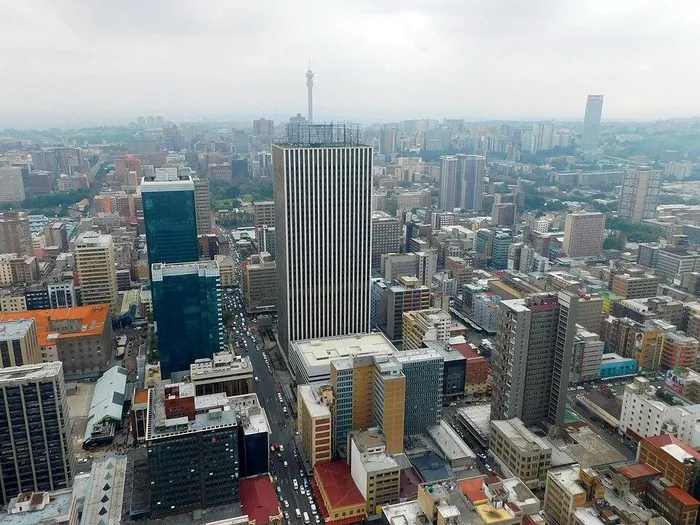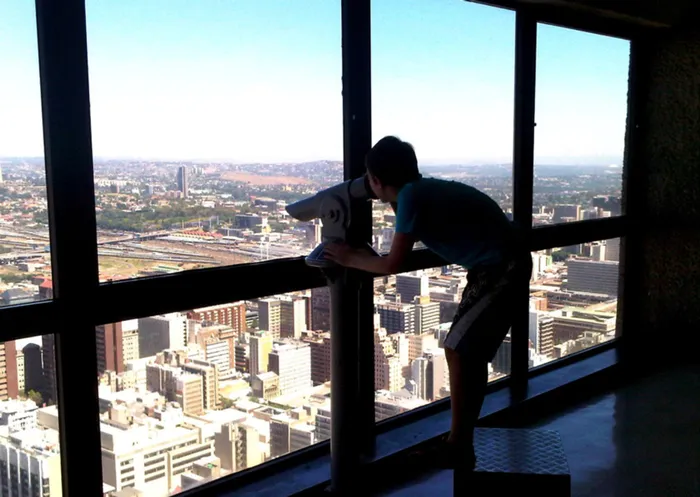
For 46 years, the Carlton Centre held the title of Africa’s tallest at 223 metres.
Image: Wikimedia
The Carlton Centre, a once-proud symbol of Johannesburg's economic might and a hub for leisure, now stands at a crossroads.
It is currently shrouded in uncertainty about its future and current state.
Confusion reigns over whether the iconic 50-storey skyscraper is falling into rack and ruin or operating as a viable, mixed-use complex of shops and offices.
This ambiguity extends to its very ownership, with its own website suggesting a sale and revitalisation is underway, while other reports indicate state-owned enterprise Transnet remains the owner.
Steeped in history, the Carlton Centre was conceived in the 1960s as a monumental superblock.
The land acquisition was a complex affair, spearheaded by a partnership between South African Breweries (SAB) and Anglo American Properties, which painstakingly amalgamated numerous small plots. SAB later sold its stake, worried about the tower’s commercial viability.
Designed by the renowned American architectural firm Skidmore, Owings & Merrill in conjunction with local partners, construction began in the late 1960s. The project involved excavating a million tons of earth to create vast underground levels. The complex officially opened in 1973.
For 46 years, the building held the title of Africa’s tallest at 223 metres. It was designed as an integrated urban hub, featuring large office spaces, a luxury hotel (the Carlton Hotel, once the largest in the Southern Hemisphere), extensive retail areas, and a popular ice rink.
Today, the centre apparently remains home to a variety of shops. Its underground mall boasts around 180 shops, including outlets like MTN, Cash Crusaders, and The Street Gym, according to its website.
For entertainment, it houses two movie theatres: Nu Metro and SK Cinema.

Hang ON: The Carlton Centre is still Africa's tallest building. There are some seriously cool things to do in the Joburg CBD. It's uncertain as to whether the Carlton Centre still offers a viewing deck.
Image: File
The “Top of Africa” observation deck on the 50th floor reportedly continues to be a prime tourist attraction, offering breathtaking 360-degree panoramic views of the city.
The ownership journey of the Centre has been a defining part of its story.
After housing major corporations like AECI, it was purchased by Transnet in 1999 for R33 million to serve as its headquarters.
In 2007, the parastatal announced plans to sell the non-core asset, a process halted by the Great Recession.
The potential value is significant, with its replacement cost estimated at around R1.5 billion.
The question of a sale now appears to be a central mystery.
While some media reports dispute it, the Centre's own website speaks of a sale and ambitious plans to revitalise the complex.
This could potentially reshape downtown Johannesburg and inject renewed energy into the area.
For now, the Carlton Centre remains a paradox – a historic landmark with active shops and a popular observation deck, yet its future hangs in the balance, waiting for a definitive chapter to be written.
IOL Business